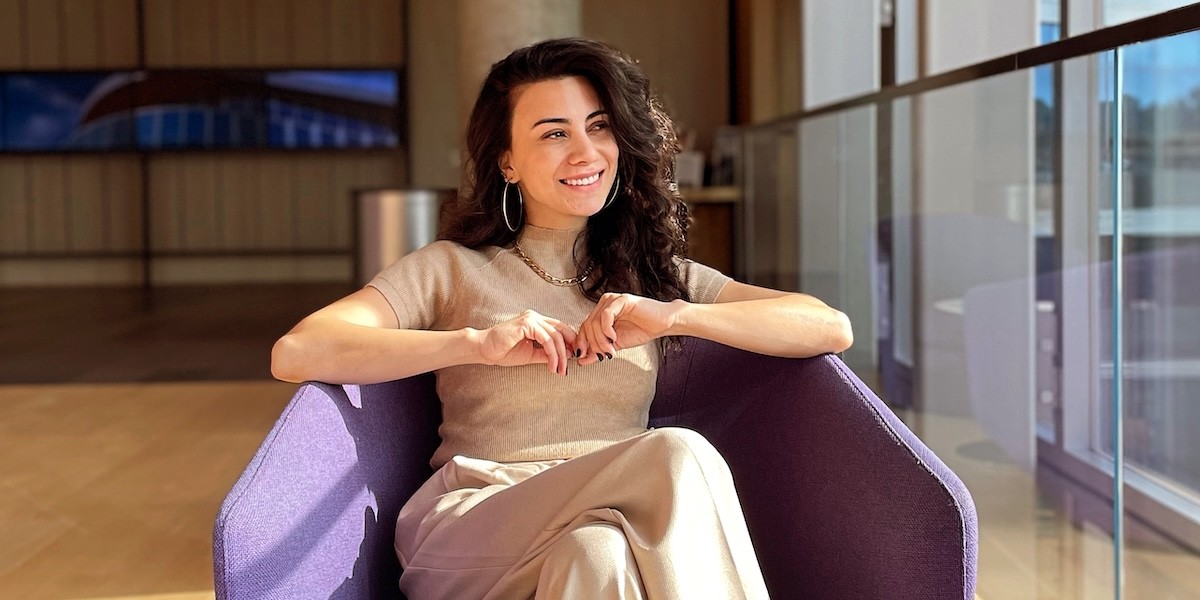By: Sayali Baloghlanova
Artificial Intelligence (AI) is increasingly influencing education across the world. From adaptive learning systems to AI-powered tutors, the integration of AI is reshaping how students learn and educators teach. AI’s potential to personalize learning experiences, streamline administrative tasks, and help bridge educational gaps is being explored by governments, schools, and startups alike. However, with these advancements come significant challenges, including data privacy concerns, ethical AI implementation, and accessibility issues.
Leaders like Dilara Rustamzada have contributed to the intersection of AI and education consistently and visibly. With a career spanning over a decade, she has been actively involved in digital transformation in education, spearheading initiatives that have enhanced learning experiences for students and educators. She founded Azerbaijan’s first NLP-based EdTech startup, which later became the first-ever government-acquired EdTech startup in the country. She then led large-scale government-backed digital education initiatives, earning her the “Tech Woman of Azerbaijan” award. Under her leadership as CEO of Edumedia, she expanded her team, increased revenue, and contributed to digitizing key education processes in the country. Now based in Silicon Valley, Dilara is working closely with AI-driven EdTech startups, helping them develop go-to-market strategies and integrate emerging AI solutions into their platforms.
Today, we speak with Dilara about her journey, achievements, and insights into how AI is poised to impact the future of education.
Dilara, thank you for joining us. You have an extraordinary career in EdTech and digital transformation. Let’s start from the beginning—how did your journey into this field begin?
Dilara Rustamzada: Thank you for having me. My journey started in 2013 when I joined Tuning Fork, an NLP technology-based startup in Azerbaijan. This was a pivotal moment in many ways. Tuning Fork was the first-ever NLP-based startup, the first EdTech startup, the first startup founded by a woman in Azerbaijan, and the first to be implemented in government for public use.
What made Tuning Fork so innovative?
Dilara Rustamzada: Our technology focused on natural language processing (NLP) to enhance student learning, automate content generation, and support adaptive learning experiences. We won the CRDF Global Startup Pitch in 2013 and secured the “Idea Won” Startup TV Showcase award in 2014. That same year, we also received the “New Idea” award for our EdTech solution. The real milestone came in 2017 when the Ministry of Education chose to implement Tuning Fork as an “Electronic Music Teaching” tool in numerous schools across Azerbaijan.
What was your next step after the acquisition?
Dilara Rustamzada: I was invited to lead EdTech digital transformation projects as CTO of Edumedia Azerbaijan. At that time, Edumedia was a small company focused on basic digital solutions. My goal was to guide its evolution into a recognized provider of nationwide digital education tools.
How did you achieve that transformation?
Dilara Rustamzada: The key was deep engagement with educators, students, parents, and schools. I worked closely with them to identify pain points in the education system, such as school admissions, university applications, teacher evaluations, and grant applications. My mission was to simplify and digitize these processes. During the COVID-19 pandemic in 2020, I led the development and deployment of The Virtual School, using Microsoft Teams to bring a substantial portion of the country’s students back to online education. This project enabled access for thousands of students and teachers and helped maintain continuity in education.
What motivated you to pursue an MBA at Kellogg School of Management?
Dilara Rustamzada: After years of leading digital transformation in Azerbaijan, I wanted to broaden my global perspective on EdTech. The Kellogg MBA program allowed me to research EdTech startups worldwide and analyze different go-to-market (GTM) strategies. I graduated in June 2024 and moved to Silicon Valley to immerse myself in a large and dynamic startup ecosystem.
How do you see AI shaping the future of education?
Dilara Rustamzada: AI has the potential to transform education in multiple ways. It allows for more personalized learning by tailoring content to students’ progress and learning styles. Automated assessment and feedback offer real-time insights, helping educators monitor student engagement. AI-powered tutors and assistants can provide instant support, while NLP-powered AI helps non-native speakers through real-time translation. AI is not here to replace teachers but to augment their capabilities. The most effective AI implementations tend to enhance teacher-student interaction rather than disrupt it.
What are the big challenges in integrating AI into education systems?
Dilara Rustamzada: The main challenges include data privacy, ethical AI implementation, and teacher adoption. Many educational institutions lack the infrastructure to store and process AI-generated data securely. Bias in AI algorithms can lead to potentially unfair assessments if not carefully designed. Teachers may also resist AI adoption, so training and awareness are essential components of successful integration.
What’s next for you in your career?
Dilara Rustamzada: My passion remains in leveraging technology to improve education on a global scale. I am actively working with EdTech investors and startup accelerators to bring innovative solutions to emerging markets. My long-term vision is to help build an international EdTech platform that provides accessible and adaptive learning experiences to students around the world.
Any advice for aspiring entrepreneurs in EdTech?
Dilara Rustamzada: The EdTech industry is an impactful yet demanding field to enter. My advice is to focus on solving real problems, engage deeply with your end users, and be prepared for continuous learning and adaptation.
Thank you, Dilara, for sharing your journey and insights on AI in education. We look forward to seeing your next big innovation!
Published by Stephanie M.

















